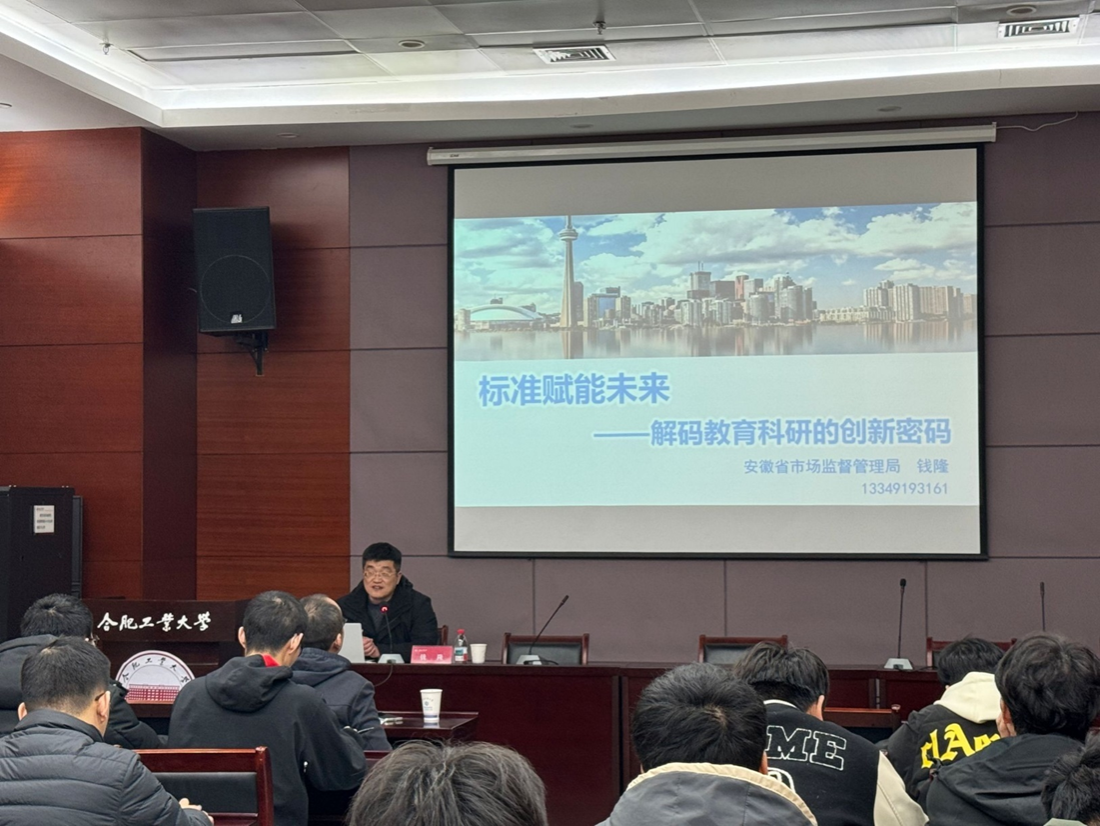On March 14th, the School of Computer Science and Information Engineering held a report titled "Standards Empowering the Future - Decoding the Innovation Code of Education and Research" in the fifth conference room of Building A, Feicui Science and Education Building. The event featured QIAN Long, an investigator from the Anhui Provincial Market Supervision Administration, as the keynote speaker. The meeting was presided over by professor WANG Hui, the vice dean of the school, and was attended by over 80 faculty members and students.
In his report, Investigator QIAN Long took a unique approach by ingeniously borrowing concepts from evolutionary theory to systematically and profoundly elucidate the evolution of standards and standardization. Addressing the core concerns of university faculty, such as teaching innovation, research application, and transformation of achievements, QIAN Long detailed the dual role of standards in aiding both teaching and research. He covered various dimensions including the essence and extension of standards, their hierarchy and classification, application, drafting requirements, and the processes of standard application and formulation. His insights provided attendees with fresh perspectives and practical guidance for implementation.
Investigator QIAN Long, who holds a master's degree in Computer Software and Theory from Hefei University of Technology, has dedicated years to the research and management of computer science, local standards, group standards, and enterprise standards. He serves as a committee member of the National Energy Industry Standardization Technical Committee for Coal Mine Gas Control and Utilization and is an expert in over a dozen expert pools, including the Anhui Provincial Comprehensive Evaluation and Review Expert Pool. He has participated in the evaluation of key research projects in Anhui Province and has guided and participated in numerous science and technology project applications and reviews. His academic achievements are notable, with several published papers and works, and he has led or participated in the drafting or review of multiple national, industry, and Anhui provincial standards. As a member of expert groups, he has been involved in the assessment and acceptance of standardization projects both within and outside the province, and has conducted numerous training sessions on standardization for enterprises and related institutions, demonstrating outstanding professional capabilities and extensive practical experience.
The successful hosting of this report not only provided a valuable opportunity for learning and exchange for the faculty and students of the school but also strengthened the connection between the school and industry experts, playing a positive role in enhancing the school's teaching and research endeavors.

 TOP
TOP